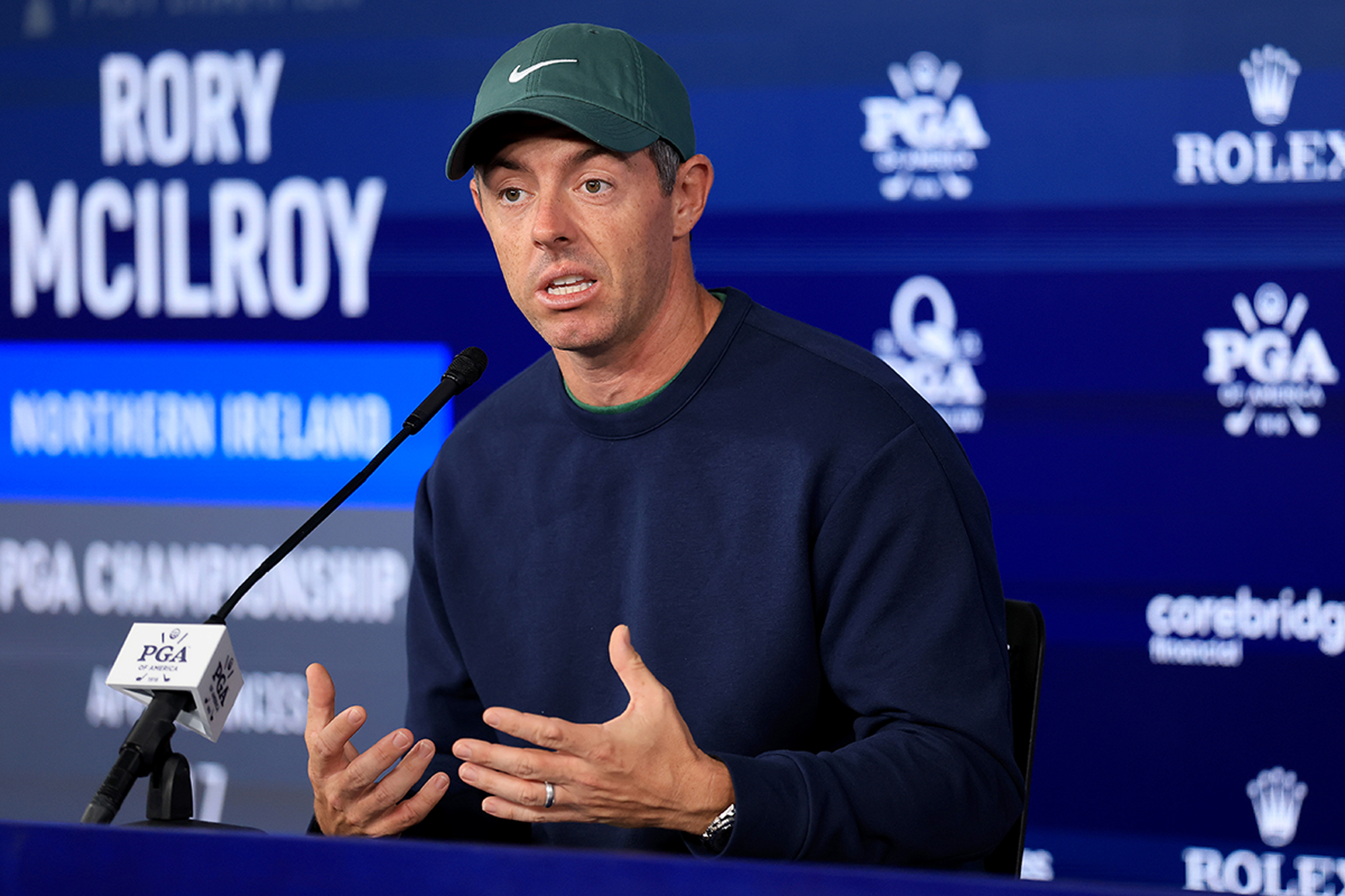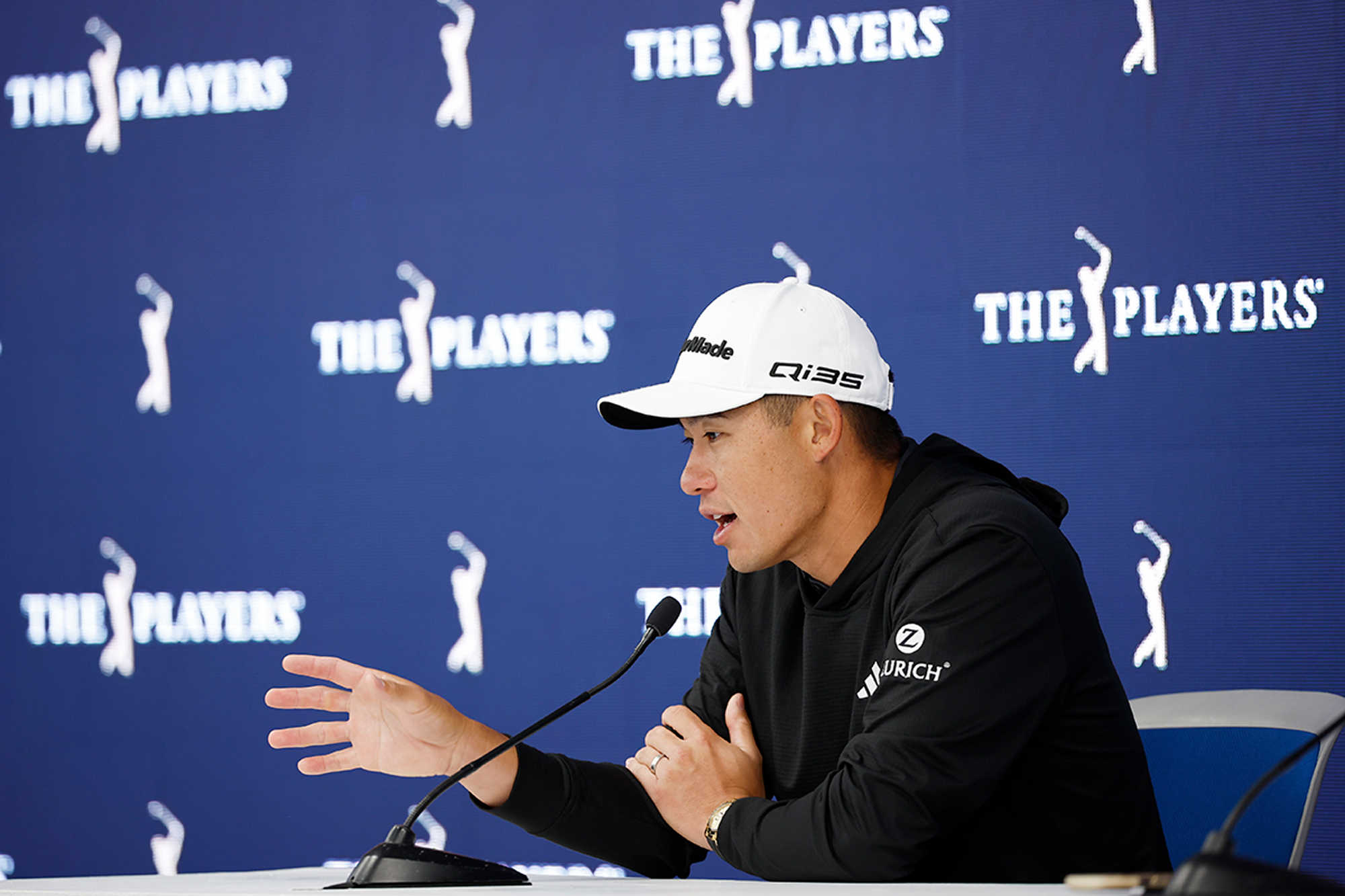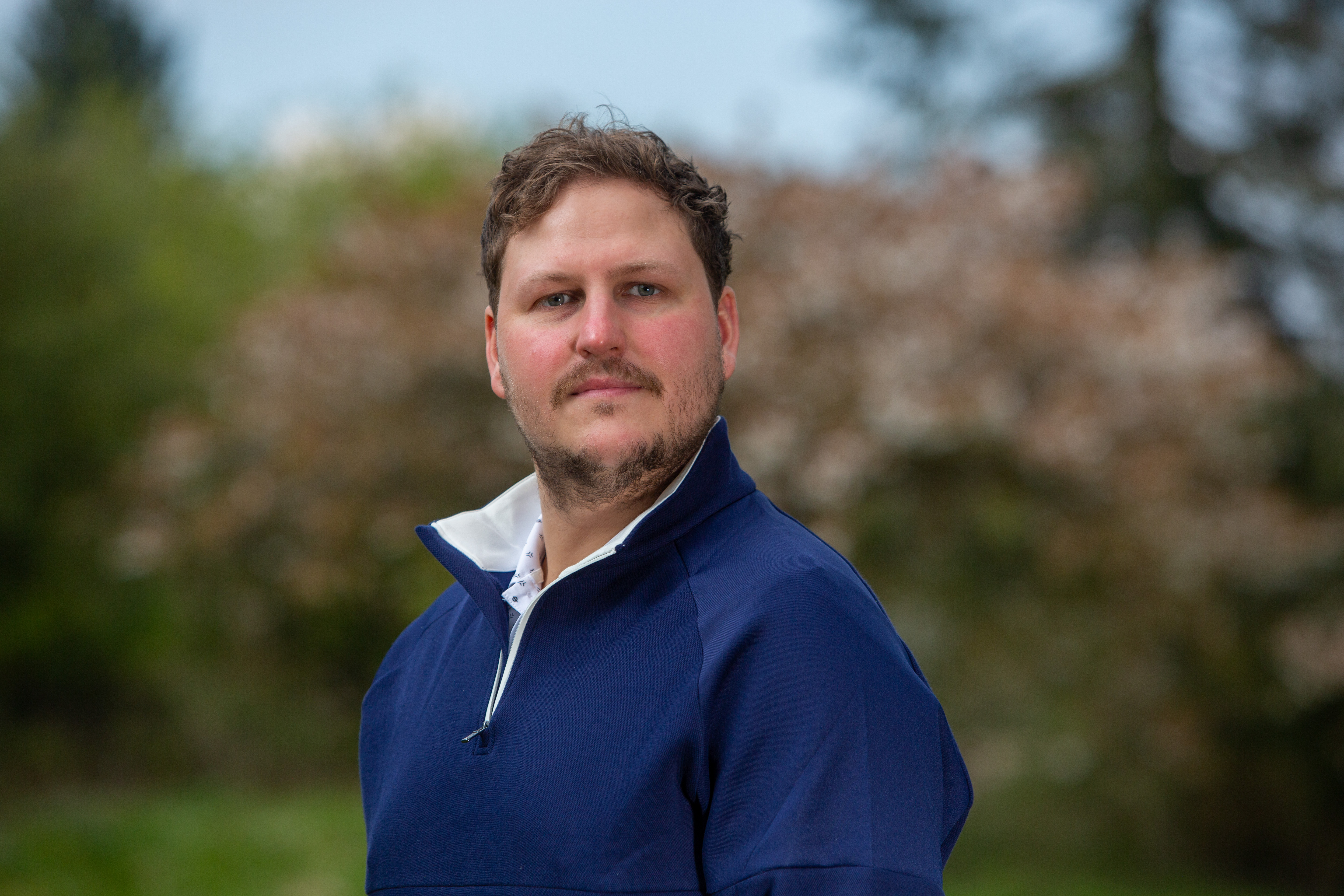Pampered Professional Golfers Skipping Media Duties Is Ignorant, Short-Sighted And Misguided
Rory McIlroy didn’t speak to the media after any of his rounds at the PGA Championship and players ignoring the press is becoming more and more common. It’s a problematic and worrying development


Subscribe to the Golf Monthly newsletter to stay up to date with all the latest tour news, equipment news, reviews, head-to-heads and buyer’s guides from our team of experienced experts.
You are now subscribed
Your newsletter sign-up was successful
Want to add more newsletters?

Delivered daily
Daily Newsletter
Sign up for all the latest tour news, gear reviews, head-to-heads and buyer’s guides plus features, tips from our top 50 coaches and rules advice from our expert team.

Once a week
Kick Point
Sign up to our free Kick Point newsletter, filled with the latest gear reviews and expert advice as well as the best deals we spot each week.

Once a week
Women's Golf Edit
Sign up to our free newsletter, filled with news, features, tips and best buys surrounding the world of women’s golf. If you’re a female golfer, you won’t want to miss out!
There’s a concerning trend developing in the realm of men’s professional golf and it mirrors a worrying paradigm shift in the real world – people putting themselves first.
Instagram constantly propagates messaging around doing what makes you happy and what suits you. We’re constantly told to be the stars of our own story and to cast aside things that don’t please us, even if that has knock-on effects.
People are increasingly overlooking the bigger picture as a ‘why should I?’ mindset takes hold. Society is as ignorant and self-absorbed as ever before.
It’s against this social-media-sculpted backdrop that a problematic theme is arising in the game of golf: players not speaking to the media after rounds of golf. Frankly, it’s pathetic.
Pampered Professional Golfers Skipping Media Duties
Rory McIlroy didn’t talk to reporters after any of his four rounds at the PGA Championship.
Whether to do with his driver being deemed non-conforming ahead of the first round or not, it’s unacceptable for the game’s biggest draw to offer no comment just a month after securing the Career Grand Slam – the most significant and high-profile golfing achievement in decades.
Some might be inclined to grant Rory some slack given they don’t know the whole picture around the USGA conforming driver test – it may be he doesn’t want to say something he’ll regret and would prefer to put out a considered statement at a later date. I understand that to a degree, but all it’s doing is kicking the can down the road.
Subscribe to the Golf Monthly newsletter to stay up to date with all the latest tour news, equipment news, reviews, head-to-heads and buyer’s guides from our team of experienced experts.
Plus, this is hardly his first strike. He didn’t speak to the media after his final-round heartbreak at last year’s US Open or following his opening round at this year’s Masters.
To be fair, Rory does speak candidly on the game and gives the media more time than others, but that shouldn’t give him carte blanche to ignore journalists at Major tournaments. Too often, he does what suits him. For all his positive qualities, he can be petulant at times.

Rory spoke to the media before the tournament started, but not after any of his four rounds at the PGA Championship
I have to agree with popular golf journalist Kyle Porter, who posted on X: “Skipping all four days is both bizarre and deserves criticism. To not talk at all after play started on Thursday is out of character and – whether it’s fair or not – an abdication of responsibility as one of the game’s greats.”
Do you think Justin Rose wanted to speak to the media after his second play-off loss at The Masters, knowing, at the age of 44, he might never be in a position to win a Major again?
Of course not. But he fronted up, spoke with elegance and grace and, most importantly, understood his duty as a prominent figure in the game.
Likewise, Bryson DeChambeau probably could have done without recounting a frustrating final round at Quail Hollow, but he took the time to speak to reporters. Both he and Rose could have chosen the easy way out, but they decided to put others first.
While players often don’t say anything groundbreaking in these moments, it’s when you see them at their most human and vulnerable.
You feel their frustration and emotion and they connect with the fans as a result. This is especially important in an era with more monotone, identikit golfers than ever before.
I’m concerned that now a precedent has been set, we’re on a slippery slope. At Augusta, Shane Lowry said he didn’t think players should have to speak to the media straight after their rounds, then chose not to after missing out to Sepp Straka in the final round of the Truist Championship.
Not long before, Collin Morikawa made his feelings on the subject known. After a frustrating final round at the Arnold Palmer Invitational – where he finished one shot behind Russell Henley – he declined to speak to the media.

At The Players Championship, Collin Morikawa was very clear on his position regarding the media
The following week at the Players Championship, he said he didn’t regret his decision and added: “I don’t owe anyone anything”.
He was quite rightly criticised by many people for that frankly ridiculous and tone-deaf statement. It showed disdain for the fans, a self-absorbed mindset and complete ignorance of the wider ecosystem. It was a seriously misguided and brattish thing to say.
Should It Be Mandatory For Players To Speak To The Media?
The media is the conduit between fans and professional sportspeople. Journalists’ words and videos are how supporters engage with a sport and its personalities (something really lacking in men’s professional golf in 2025).
If players don’t speak to the media, fans lose out. If the media stops attending events because they’re unlikely to speak to the protagonists, fans lose out. If fans lose out, they start losing interest. If fans lose interest, so do sponsors. If golf becomes less commercially viable, purses and sponsorship money goes down.
The trouble is, this won’t affect the current crop of players, who are already richer than 99.9% of the world’s population. Relying on people to make choices that put other people first is increasingly difficult.
The emergence of LIV Golf and the massive boom in PGA Tour prize pools hasn’t helped, either – in fact, it’s exacerbated some players’ sense of superiority and self-importance.
It does feel like we’re at a crossroads. Will the PGA Tour and Majors step in to mandate obligatory media appearances? It shouldn’t be necessary, but it might be the only way.
Now a precedent has been set, it’s only going to go one way from here should the existing status quo remain.

Nick Bonfield joined Golf Monthly in 2012 after graduating from Exeter University and earning an NCTJ-accredited journalism diploma from News Associates in Wimbledon. He is responsible for managing production of the magazine, sub-editing, writing, commissioning and coordinating all features across print and online. Most of his online work is opinion-based and typically centres around the Majors and significant events in the global golfing calendar. Nick has been an avid golf fan since the age of ten and became obsessed with the professional game after watching Mike Weir and Shaun Micheel win The Masters and PGA Championship respectively in 2003. In his time with Golf Monthly, he's interviewed the likes of Rory McIlroy, Justin Rose, Jose Maria Olazabal, Henrik Stenson, Padraig Harrington, Lee Westwood and Billy Horschel and has ghost-written columns for Westwood, Wayne Riley, Matthew Southgate, Chris Wood and Eddie Pepperell. Nick is a 12-handicap golfer and his favourite courses include Old Head, Sunningdale New, Penha Longha, Valderrama and Bearwood Lakes. If you have a feature pitch for Nick, please email nick.bonfield@futurenet.com with 'Pitch' in the subject line. Nick is currently playing: Driver: TaylorMade M1 Fairway wood: TaylorMade RBZ Stage 2 Hybrid: Ping Crossover Irons (4-9): Nike Vapor Speed Wedges: Cleveland CBX Full Face, 56˚, Titleist Vokey SM4, 60˚ Putter: testing in progress! Ball: TaylorMade TP5x
You must confirm your public display name before commenting
Please logout and then login again, you will then be prompted to enter your display name.